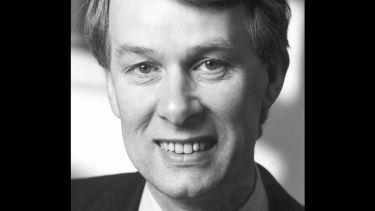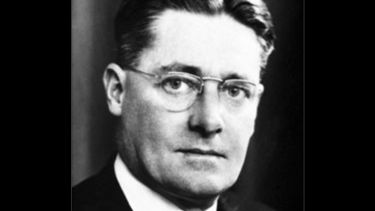Nobel Laureates
Our staff and students achieve great things. Six members of our staff have been awarded a prestigious Nobel Prize.
Professor Sir Fraser Stoddart
The Nobel Prize in Chemistry 2016
Professor Sir Fraser Stoddart (ICI Research Fellow then Lecturer 1970-1978; Reader in Chemistry 1981-1990) shared the Nobel Prize in Chemistry in 2016 with Jean-Pierre Sauvage and Bernard L. Feringa for the design and synthesis of the world's smallest molecular machines, which are a thousand times thinner than a strand of hair. Their work has dramatically changed the way in which chemists can prepare complex assemblies of individually simple components so that useful functions emerge on a tiny scale. This will have a fundamental role to play in the future development of nanotechnology.
Sir Harry Kroto, FRS
The Nobel Prize in Chemistry 1996
Sir Harry (BSc Chemistry 1961, PhD 1964) shared the Nobel Prize in Chemistry in 1996 with Robert Curl and Richard Smalley for discovering a new form of carbon, known as "buckminsterfullerene", which stands alongside the two other well-defined forms, diamond and graphite.
Sir Richard Roberts, FRS
The Nobel Prize in Physiology or Medicine 1993
Sir Richard (BSc Chemistry 1965, PhD 1968) shared the Nobel Prize in Physiology or Medicine in 1993 with Phillip Sharp for their discovery of "split genes", thereby disproving the long-held theory that genes in plants and animals were made up of continuous segments of DNA. This has important biological, medical and evolutionary consequences.
Lord Porter of Luddenham, OM, FRS
The Nobel Prize in Chemistry 1967
Lord Porter (Professor of Physical Chemistry 1955-66) shared the Nobel Prize in Chemistry in 1967 with Ronald Wreyford for their discovery of flash photolysis, a technique which enabled chemists for the first time to measure the speed and mechanism of certain reactions that occurred too quickly for detection by conventional methods.
Sir Hans Krebs, FRS
The Nobel Prize in Physiology or Medicine 1953
Sir Hans (Lecturer in Pharmacology 1935-45, Professor of Biochemistry 1945-54) was a German-born physician and biochemist who shared the Nobel Prize in Physiology or Medicine in 1953 with Fritz Lipmann for his discovery of the citric acid cycle, since named the Krebs Cycle, which explains how life-giving energy is set free in cells by oxidation of glucose to carbon dioxide and water.
Howard Florey, Baron Florey of Adelaide and Marston, FRS
The Nobel Prize in Physiology or Medicine 1945
Lord Florey (Joseph Hunter Chair of Pathology 1932-35) was an Australian pharmacologist and pathologist who shared the Nobel Prize in Physiology or Medicine in 1945 with Sir Ernst Boris Chain and Sir Alexander Fleming for the discovery of penicillin and its curative effect in various infectious diseases. Florey is regarded by the Australian scientific and medical community as one of its greatest scientists. More than 82 million lives worldwide have been saved thanks to the discovery of the drug.






